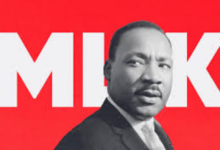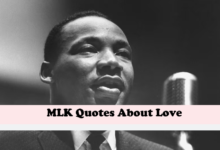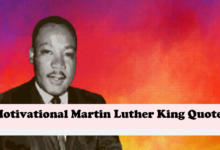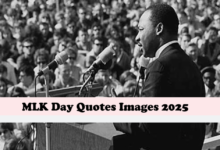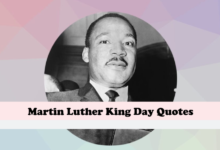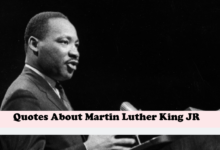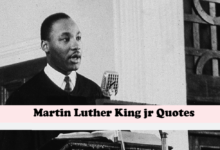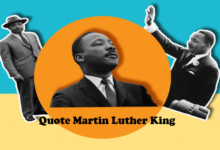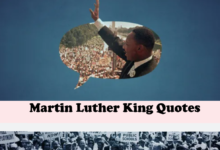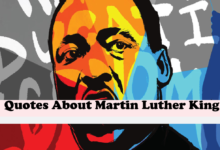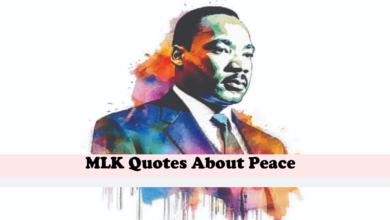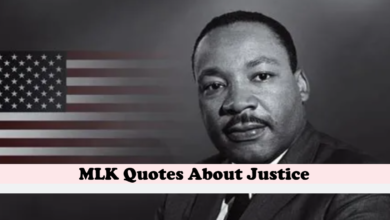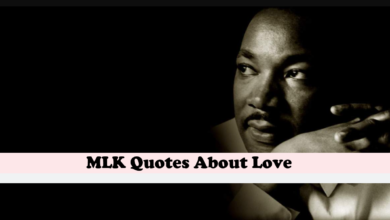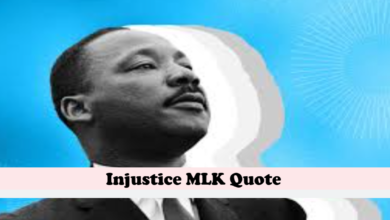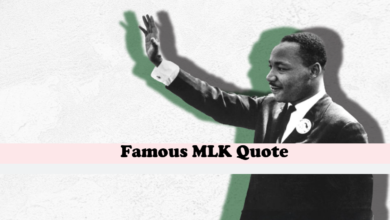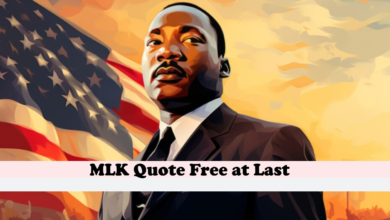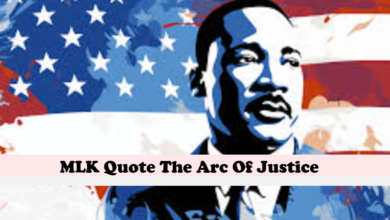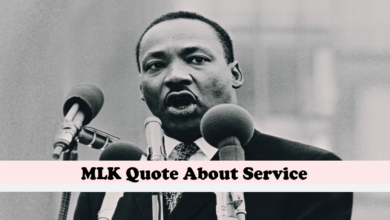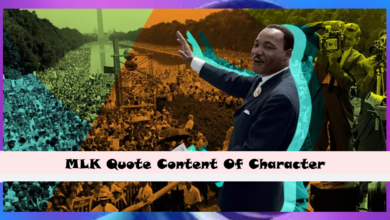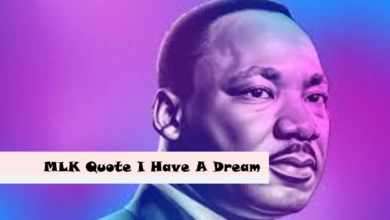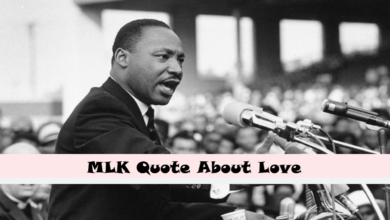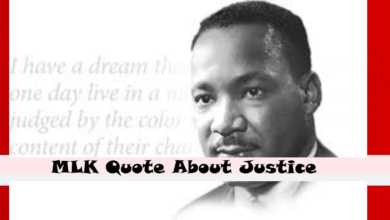MLK Quote About Education
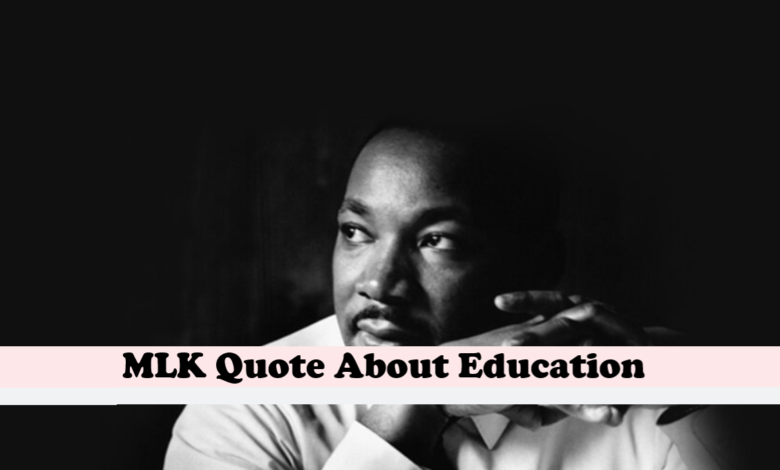
Martin Luther King Jr. is perhaps best known for his leadership in the Civil Rights Movement, his commitment to nonviolent resistance, and his pursuit of racial justice. However, Dr. King was also an ardent advocate for the power of education as a tool for personal growth, societal change, and the creation of a more just and equal world. One of his most powerful quotes about education is: “The function of education is to teach one to think intensively and to think critically. Intelligence plus character—that is the goal of true education.” These words reflect King’s deep belief that education was not just a means to acquire knowledge but a pathway to moral and intellectual growth that would drive social transformation.
In this blog post, we will explore the significance of King’s thoughts on education, the broader context of his educational philosophy, and the ongoing relevance of his ideas today.
MLK Quote About Education
For Martin Luther King Jr., education was a cornerstone of personal and societal transformation. He understood that knowledge could not be confined to simply memorizing facts or passing exams. True education, according to King, should encourage critical thinking, challenge the status quo, and cultivate character alongside intellect. His famous quote, “The function of education is to teach one to think intensively and to think critically,” emphasizes the importance of developing the ability to analyze, question, and reflect on the world around us.
King believed that critical thinking was essential in the fight for justice. To change the world, people needed to question the systems that perpetuated inequality, challenge discriminatory beliefs, and strive for a more just society. Education, in this sense, was not just about intellectual pursuits—it was about using knowledge as a weapon against injustice and as a tool for advancing human dignity.
“Darkness cannot drive out darkness: only light can do that. Hate cannot drive out hate: only love can do that.”
― Martin Luther King Jr.,
“I have decided to stick to love…Hate is too great a burden to bear.”
― Martin Luther King Jr.
“I have decided to stick to love…Hate is too great a burden to bear.”
― Martin Luther King Jr.
“Our lives begin to end the day we become silent about things that matter.”
― Martin Luther King Jr.
“In the end, we will remember not the words of our enemies, but the silence of our friends.”
― Martin Luther King Jr.
Faith is taking the first step even when you can’t see the whole staircase.”
― Martin Luther King Jr.
“If you can’t fly then run, if you can’t run then walk, if you can’t walk then crawl, but whatever you do you have to keep moving forward.”
― Martin Luther King Jr.
“But I know, somehow, that only when it is dark enough can you see the stars.”
― Martin Luther King, Jr.
“Let no man pull you so low as to hate him.”
― Martin Luther King Jr., A Knock at Midnight: Inspiration from the Great Sermons of Reverend Martin Luther King, Jr.
“There comes a time when one must take a position that is neither safe, nor politic, nor popular, but he must take it because conscience tells him it is right.”
― Martin Luther King Jr., A Testament of Hope: The Essential Writings and Speeches
“Nothing in the world is more dangerous than sincere ignorance and conscientious stupidity.”
― Martin Luther King Jr.
“The ultimate measure of a man is not where he stands in moments of comfort and convenience, but where he stands at times of challenge and controversy.”
― Martin Luther King Jr.
“Intelligence plus character-that is the goal of true education.”
― Martin Luther King Jr.
“Everybody can be great…because anybody can serve. You don’t have to have a college degree to serve. You don’t have to make your subject and verb agree to serve. You only need a heart full of grace. A soul generated by love.”
― Martin Luther King Jr.
“No one really knows why they are alive until they know what they’d die for.”
― Martin Luther King Jr.
“We must come to see that the end we seek is a society at peace with itself, a society that can live with its conscience.”
― Martin Luther King Jr.
“Injustice anywhere is a threat to justice everywhere.”
― Martin Luther King Jr.
“A man who won’t die for something is not fit to live.”
― Martin Luther King Jr., The Autobiography of Martin Luther King, Jr.
“Forgiveness is not an occasional act, it is a constant attitude.”
― Martin Luther King Jr.
“If a man is called to be a street sweeper, he should sweep streets even as a Michaelangelo painted, or Beethoven composed music or Shakespeare wrote poetry. He should sweep streets so well that all the hosts of heaven and earth will pause to say, ‘Here lived a great street sweeper who did his job well.”
― Martin Luther King Jr.
“We must accept finite disappointment, but never lose infinite hope.”
― Martin Luther King Jr.
“Those who are not looking for happiness are the most likely to find it, because those who are searching forget that the surest way to be happy is to seek happiness for others.”
― Martin Luther King Jr.
“I have a dream that my four little children will one day live in a nation where they will not be judged by the color of their skin but by the content of their character.”
― Martin Luther King Jr.
“Never forget that everything Hitler did in Germany was legal.”
― Martin Luther King Jr.
“We must live together as brothers or perish together as fools.”
― Martin Luther King Jr.
“Science investigates; religion interprets. Science gives man knowledge, which is power; religion gives man wisdom, which is control. Science deals mainly with facts; religion deals mainly with values. The two are not rivals.”
― Martin Luther King, Jr
The Dual Goal of Education: Intelligence and Character
King’s quote also highlights the dual goal of education: to foster intelligence and to cultivate character. He famously said, “Intelligence plus character—that is the goal of true education.” This statement reflects his belief that education should not be a purely intellectual pursuit, but should also nurture qualities such as integrity, empathy, and a commitment to justice.
For King, intelligence without character could be dangerous. People who were highly intelligent but lacked a strong moral compass could use their knowledge for harmful purposes, as seen throughout history with those who have exploited their intellect for oppression, greed, or violence. Education, in King’s view, had a moral dimension—it was about developing not only the ability to think but also the capacity to do what was right.
Education for King was also about developing a sense of social responsibility. He believed that individuals should use their intelligence to contribute positively to their communities and the world at large. True education would enable people to see beyond their own interests, to recognize the humanity in others, and to actively work to improve society. This concept of education aligns closely with his nonviolent philosophy, which emphasized compassion, justice, and peace.
King’s Experience with Education
Martin Luther King Jr.’s own education played a significant role in shaping his views on the subject. Born into a family with a strong emphasis on academic achievement, King was raised with the belief that education was one of the key factors that could elevate an individual’s life. He attended Morehouse College in Atlanta, Georgia, where he earned a bachelor’s degree in sociology. During his time at Morehouse, King was deeply influenced by educators who stressed the importance of both intellect and character.
After Morehouse, King went on to earn a divinity degree from Crozer Theological Seminary in Pennsylvania and later a Ph.D. in systematic theology from Boston University. Throughout his academic journey, King was exposed to a variety of ideas that shaped his understanding of social justice, nonviolence, and the interconnectedness of human beings.
King was also influenced by his exposure to the works of philosophers, theologians, and activists who had used education to fuel social change. He read widely on issues of racial justice and equality, and he was particularly influenced by the teachings of Mahatma Gandhi, whose nonviolent philosophy shaped King’s own approach to civil disobedience. For King, education was not just about formal schooling—it was about a lifelong process of learning, reflecting, and applying one’s knowledge in ways that could improve society.
The Role of Education in the Civil Rights Movement
King saw education as a powerful tool for empowering individuals and communities in the struggle for civil rights. During the 1950s and 1960s, when segregation and racism were pervasive in the United States, King understood that one of the most effective ways to challenge the status quo was through education. The Civil Rights Movement, in many ways, was an educational movement. It sought to educate people—both Black and white—about the realities of racial injustice and the need for systemic change.
In the face of violence, discrimination, and segregation, King and other activists organized campaigns to raise awareness about the plight of African Americans and to challenge the educational inequities that existed, particularly in the South. Through sit-ins, protests, and speeches, they worked to educate the public about the need for equality in education, voting rights, and public life. King recognized that education was key to dismantling racial prejudice and building a more inclusive society.
One of the most significant achievements of the Civil Rights Movement was the passage of the Civil Rights Act of 1964, which prohibited discrimination in education, employment, and public accommodations. King’s work, alongside the efforts of other civil rights leaders, laid the foundation for future generations to access better educational opportunities. The Movement’s focus on education was essential in giving Black Americans the tools they needed to break the cycle of poverty, marginalization, and inequality.
Education as a Path to Social Change Today
The importance of education as a tool for social change is just as relevant today as it was during King’s time. King’s belief in the power of education to foster both intelligence and character resonates in the ongoing struggles for racial justice, gender equality, and human rights around the world. Education continues to be one of the most effective ways to address systemic issues and create a more just and equitable society.
In contemporary society, education is central to many of the movements advocating for racial and social justice. From the fight for better access to education in marginalized communities to the calls for curricula that reflect the diverse experiences of people of color, education remains a vital tool for challenging injustice. Additionally, King’s emphasis on character development is still relevant as we address issues like inequality in the workplace, discriminatory policies, and political polarization. True education, as King envisioned, goes beyond academic achievement—it involves the cultivation of empathy, responsibility, and moral integrity.
Moreover, the role of education in tackling contemporary challenges, such as climate change, poverty, and human rights abuses, shows that King’s vision for education as a force for good is enduring. Education equips individuals with the knowledge, skills, and ethical framework needed to confront complex global issues.
Conclusion: King’s Enduring Legacy in Education
Martin Luther King Jr.’s thoughts on education continue to inspire and guide educators, students, and activists today. His belief that education should teach people to think critically, act with integrity, and work toward justice provides a lasting framework for how we approach education in the modern world. As King once said, “The function of education is to teach one to think intensively and to think critically. Intelligence plus character—that is the goal of true education.”
In a world that continues to grapple with inequality, injustice, and social unrest, King’s call for education as a means of empowerment and transformation is more relevant than ever. As we work toward creating a more just and inclusive society, King’s vision of education as a tool for moral and intellectual development remains a guiding light for future generations.
